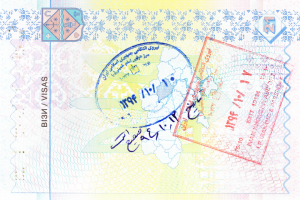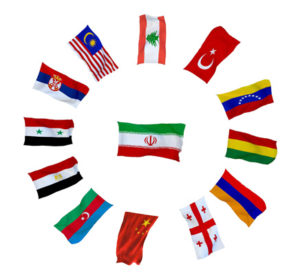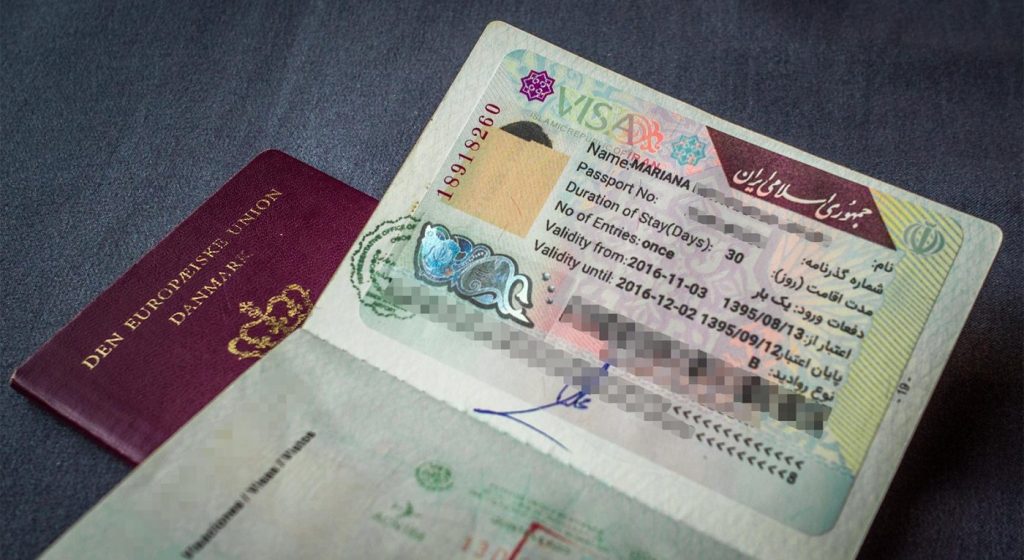Looking to travel to Iran in the future? If you have started planning your trip, you may already have realized you need a visa. Visa requirements are different depending on which passport you hold. For some, they are pretty straightforward, while for others they can end up feeling like a headache.
We’ve listed the requirements for each nationality.
Requirements for Iran Visa on Arrival
Let’s put things clear first. Getting a visa on arrival is the easiest way of obtaining an Iran visit visa, although not the safest and you may be rejected at the airport.

Another problem with visa on arrival can be that according to the visa policy of Iran some airline companies can have disclaimers that they can refuse to board to travelers without valid visas That’s why many people don’t like the idea of traveling to a country without a visa in advance. They are afraid that they will not be granted one and will have paid an expensive flight ticket in vain. secure your visa with only 19 EUR.
Iran visa on arrival (VOA) or Iran airport visa, refers to that kind of Iran tourist visa received by eligible nationals traveling to Iran for tourist purpose. Diplomatic passport, official passports, etc. cannot apply for this type of Iran visa.
Visa on arrival can be issued at major international airports in Iran. You cannot get this visa on the land borders. List of airports where you can get Iran visa on arrival:
● IKA: Imam Khomeini Airport
● TEH: Tehran Mehrabad Airport
● SYZ: Shiraz International Airport
● MHD: Mashhad International Airport
● TBZ: Tabriz International Airport
● ISF: Isfahan International Airport
● KIH: Kish International Airport
Since January 2017, visa on arrival is valid for 30 days. They can only be extended by Iranian Foreign Affair Office. Bear in mind they will only do so if they find it necessary. The process is not easy and usually comes with a maximum extension of 14 days. for more information about How to extend an Iran visa, check out this article: Iran visa Extention
Also, keep in mind that a visa upon arrival still requires the right documents and that there are requirements (check what requirements are valid for your nationality below). Not every nationality can get a visa upon arrival.

Iran airport visa- Iran visa on arrival
Here are the ones that can:
Which countries DO NOT NEED a Visa to enter Iran:
Armenia (90 Days), Azerbaijan (30 Days), Bolivia (30 Days), Egypt (20 Days), Georgia (45 Days), Lebanon (30 Days), Malaysia (15 Days), Serbia (30 Days), Turkey (90 Days), Venezuela (15 Days).
Countries whose Nationals CAN Apply for the Iran Visa on Arrival:
Albania, Australia, Austria, Bahrain, Belarus, Belgium, Bosnia Herzegovina, Brazil, Brunei, Bulgaria, China (People’s Republic), Croatia, Cuba, Cyprus, Denmark, Finland, France, Germany, Greece, Hungary, India, Indonesia, Ireland, Italy, Japan, Kazakhstan, Kuwait, Kyrgyzstan, Luxembourg, Mexico, Mongolia, Netherlands, New Zealand, North Korea, Norway, Oman, Palestine, Peru, Philippines, Poland, Portugal, Qatar, Romania, Russia, Saudi Arabia, Singapore, Slovakia, Slovenia, South Korea. Spain, Sweden, Switzerland, Syria, Tajikistan, Thailand, Turkmenistan, Ukraine, United Arab Emirates, Uzbekistan, Vietnam.
According to the visa policy of Iran, the cost for a visa upon arrival depends on your nationality, it’s 75 euros for most European nationals and 145 euros for Australian. Read our post about Visa on Arrival for more details.

Iran visa free countries
Countries that can’t get an Iranian visa on arrival should get the authorization code through an agency in advance and collect their visa in an Iranian embassy. you can get your authorization code in 2 business days through 1stQuest with only 19 EUR.
Here is a guide for checking your Iran visa status: Iran visa status
Do you want to get your visa in 2 days without any hassle? 1stQuest will take care of all the process with best support. It`s cheap, easy and the chance of rejection is almost 0%.
Iran Visa requirements for Europeans
According to the visa policy of Iran, if you are a European citizen, you are in the group of nationalities that will have the least problems to obtain a visa for Iran. One way to get your visa is VOA (visa on arrival) for which the requirements are:
The requirements are:
1. A valid passport with at least 6 months validity
2. A confirmed return ticket within a 30-day timeframe
3. A photo to be attached to the Iran visa application form
4. Iran Visa fee, which is payable to the Iran Visa & Passport Office at the airport. Iran airport visa fee depends on the applicant’s nationality. Usually 75 euros.
5. An invitation letter or hotel reservation voucher. The invitation letter has to be sent from the Iranian travel agency to Iran Ministry of Foreign Affairs at least 48 hours before your arrival to Iran airport.
6. Not officially listed but mandatory: travel insurance valid for Iran. Printed.
You can also apply online through 1stQuest and get your Iran e visa in 2 days or go to the embassy in your country which may take up to 3 weeks to get your visa.

If you hold a European passport it is unlikely you will encounter problems applying for your Iranian tourist visa.
Iran Visa requirement for US, UK, and Canadian citizens
There is one exception in Europe, and that is if you have a British passport. In this case, your requirements are the same as for US citizens and Canadians. All passport holders from the USA, Canada, and the UK must be accompanied by a licensed guide for all travels in Iran. This essentially means that unless you hire your own private guide for the entire duration of your visit, you must join an organized tour.
Also check out: Iran business visa requirements
The advantage is that 1stQuest will help you with the entire process of applying for an Iranian visa. The documents required are as below:
These requirements are:
1. A valid passport with at least 6 months validity.
2. Visa stamp fee, which is payable to the Iranian embassy. The fee is about 50 euros for Americans, 60 euros for Canadians and 180 euros for British citizens.
3. The authorization letter which has to be sent from the Iranian travel agency to Iran Ministry of Foreign Affairs.
4. A photo to be attached to the Iran visa application form
5. Not officially listed but mandatory: travel insurance valid for Iran. Printed.
These nationalities can’t get a visa upon arrival and should complete the process in advance.

Iran visa
Iran visa requirements for Pakistanis
Pakistani passport holders cannot get an Iran Visa on arrival and should apply for a visa in advance. Indian nationals, on the other hand, can get a visa both in advance or at the airport on arrival. The process and required documents for Pakistani and Indian citizens are exactly the same as other citizens. The documents required for getting a visa in the embassy for both Indians and Pakistanis are:
The requirements are:
1. A valid passport with at least 6 months validity
2. A confirmed return ticket within a 30-day timeframe
3. A photo to be attached to the Iran visa application form
4. Visa stamp fee, which is payable to the Iran Visa & Passport Office at the airport. Iran airport visa fee depends on the applicant’s nationality. Usually 75 euros.
5. The authorization letter that has to be sent from the Iranian travel agency to Iran Ministry of Foreign Affairs at least 48 hours before your arrival to Iran airport.
6. Not officially listed but mandatory: travel insurance valid for Iran. Printed.
here is an ultimate guide for Iran visa from Pakistan: Iran Visa from Pakistan
You can easily go through the whole process via 1stQuest. Another option is to visit the embassy.
Also recently Indian nationalities can get a visa on arrival for 30 days.
Do you want to get your visa in 2 days without any hassle? 1stQuest will take care of all the process with best support. It`s cheap, easy and the chance of rejection is almost 0%.
Caution!
Regardless of the nationality, you cannot have an Israeli stamp in your passport. And while Israel doesn’t stamp passports anymore, you also can’t have any evidence of entry in Israel. For example, an Egyptian stamp at the border city of Taba could result in denied entry.

